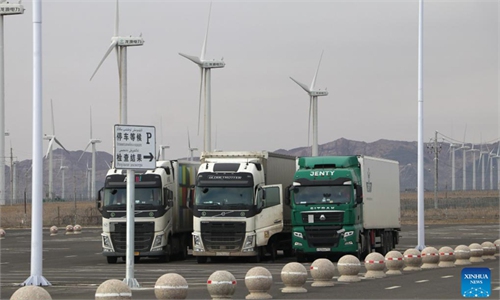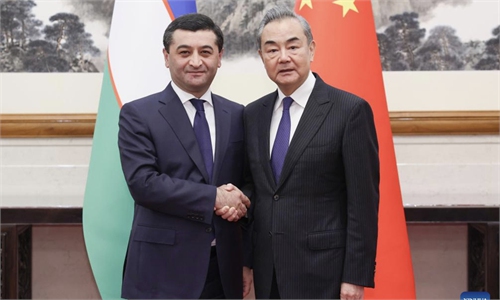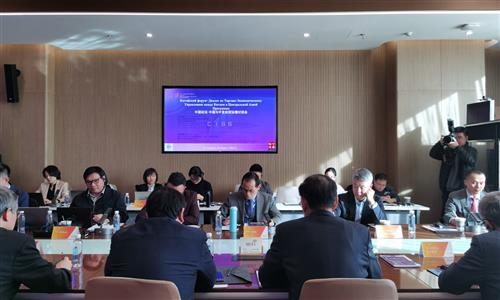
Illustration: Chen Xia/Global Times
With the deepening ties between China and Central Asia, Northwest China's Xinjiang Uygur Autonomous Region has emerged as a key driver in the country's western opening-up and cooperation with neighboring countries.China and Uzbekistan have upgraded their ties to an all-weather comprehensive strategic partnership for a new era, according to a statement released by the Ministry of Foreign Affairs on Thursday.
The elevation of the China-Uzbekistan relationship has great significance for bilateral relations and shows that China and Central Asia attach great importance to their relations, signaling the vigorous development of regional cooperation.
Central Asia has held an increasingly important position in regional and global affairs in recent years, with growing influence on such issues as energy security, counter-terrorism and regional economic integration. Over the past three decades, China and Central Asian countries have cooperated closely at the multilateral and bilateral levels, contributing to regional security and stability by respecting each other's development paths and opposing external interference and terrorism threats.
Central Asia's unique geo-economic location covers key logistics channels linking East Asia, West Asia, South Asia, the Middle East and Europe. It's an important node for the China-proposed Belt and Road Initiative (BRI).
China's cooperation with Central Asia has grown rapidly over the past decades, with China being among the top three trading partners for the five Central Asian countries.
The Xi'an Declaration of the China-Central Asia Summit, which was signed by the six countries in May 2023, created a blueprint for the development of China-Central Asia economic cooperation, aiming to strengthen cooperation in terms of the BRI, trade, transport, agriculture, energy and other fields.
The reason why China and Central Asia have the foundation for further economic cooperation is not only because the two sides have high levels of political mutual trust, but also because China's heavy investment in Xinjiang and the shift of manufacturing to Xinjiang have made the region an important transport hub and regional manufacturing center in China-Central Asia cooperation. Xinjiang has unique geographical advantages and land port advantages, which have given rise to regional trade and economic exchanges.
In 2023, Xinjiang's foreign trade totaled 357.33 billion yuan ($50.42 billion), surging 45.9 percent year-on-year and ranking second among Chinese provinces in terms of growth. It was the first time that Xinjiang's foreign trade had exceeded 350 billion yuan.
The five Central Asian countries remained the largest trade market for Xinjiang, with trade up 50 percent in 2023, accounting for 79.4 percent of Xinjiang's total foreign trade.
The pace of Xinjiang's opening-up has never stopped in recent years. Last year, it took a historic leap with the inauguration of a pilot free trade zone (FTZ), which is China's 22nd pilot FTZ and the first in the country's northwestern border regions.
Xinjiang has also made efforts to upgrade the transportation infrastructure at its land ports in order to enhance growth and improve customs clearance efficiency.
Apparently, by making these breakthroughs under attacks and sanctions by the US and some other Western countries, Xinjiang has played a crucial role in facilitating China-Central Asia cooperation to enter a new stage.
Now, with a stable society and improving living standards, the central government's plans for Xinjiang have been realized step by step, making the region an important driving force for regional cooperation.
It's important to note that China's cooperation with Central Asia not only serves its own development needs, but also aligns with the development needs of other countries. While there may be challenges facing Central Asian countries, they won't hinder potential cooperation with China. The continuous expansion and deepening of cooperation between the two sides will make positive contributions to regional development.



